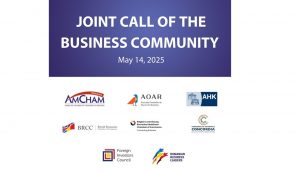ASF announces approval of financing for the digital transformation project worth 96.4 million lei

The Financial Supervisory Authority (ASF) announces the approval of the financing of the institution’s digital transformation project, submitted in December 2024 within the call for projects related to the Smart Growth, Digitalization and Financial Instruments Program (PoCIDIF).
This is intended to redefine the way in which ASF carries out its activity and interacts with the non-banking financial market.
The project, entitled “Digitizing Access for Citizens and Companies to Investments by Ensuring a Sustainable Financial Market – D A C C I A PIFS”, has a total value of 96.4 million lei and an implementation period of three years. The implementation of this important project represents a significant step in the modernization and streamlining of the regulatory, authorization, supervision and control functions of ASF, including the petitions and alternative dispute resolution activity, as well as in the area of financial education. The number of annual users of the project is estimated at over 160,000.
“The digitalization of the Financial Supervisory Authority is one of my priorities, established since taking office. I am confident that this project, the first financed from European funds at the institution level, will contribute significantly, by creating new digital tools, both to the transformation and modernization of the ASF, and to improving the transparency, efficiency and accessibility of services offered to consumers, as well as to the non-banking financial sector. I would like to thank my colleagues from the Authority, who contributed with professionalism to the development of the project, as well as to the specialists of the Authority for the Digitalization of Romania for the support provided in the development of the specific documentation”, declared Alexandru Petrescu, President of the ASF.
The initiative comes in response to the need for digital transformation of internal work processes identified in all business functions of the ASF and to the new challenges in the process of adopting the European regulatory framework that supports the objective of integrating new concepts regarding digital finance and sustainable finance.
“As I have said since taking over the position of First Vice President of ASF, I have two priorities – transparency and digitalization of the institution. If the first year of my mandate was dedicated to the transparency initiative, this year we are focusing on the digitalization process of the Authority. The approval of the ASF digitalization project represents a decisive and particularly important moment for our institution and for the entire non-banking financial sector. As a project manager, I am confident that this initiative will trigger a major reform, with impact both internally, by modernizing processes and workflows, and externally, in the interaction with consumers and market participants,” said Gabriel-Ioan Avrămescu, First Vice President of ASF, project manager.
The general objective of the project is to implement an integrated IT system that will support ASF in its efforts to develop and diversify electronic public services offered to the business environment, public administration and the general public through internal processes optimized by digital technologies. Also, the implementation of this project will allow ASF to respond more promptly to the challenges of the financial market that is in continuous evolution, benefiting from the advantages of new technologies.
The benefits of implementing this extensive digitalization project are multiple, including:
- Improving the quality of services offered to the business environment and citizens and expanding the offer of online services;
- Making ASF’s public communication regarding the non-banking financial market more efficient and in relation to the relevant international authorities – ESMA, EIOPA;
- Reducing costs/consumption of resources – material, human, financial – for resolving requests addressed to ASF by supervised entities; • Streamlining and aligning the operational flow at the institution level with modern tools used at European level, by digitizing the internal analysis flow and efficiently allocating resources to value-added activities to achieve the institution’s objectives;
- Optimizing the supervisory activity at the level of an entity active on the market, by building an integrated database between the three sectors regulated and supervised by ASF;
- Supporting the regulatory activity based on data of the non-banking financial market by making better use of the large volumes of data collected;
- Achieving a higher degree of transparency of ASF’s activity and access of regulated entities to the services offered by ASF, as well as increasing their satisfaction and trust in the institution’s activity;
- Increasing the degree of data protection and security of information processed by ASF in fulfilling its object of activity and ensuring compliance with national and international standards and regulations;
- Streamlining institutional response to market developments, legislative changes, expansion of powers and adoption of new standards and regulatory/authorization/supervision/control procedures facilitated by digital technologies.
As a preliminary phase for implementation, the project will go through the pre-contracting stage and finalize the steps to sign the financing application in a very short time.













